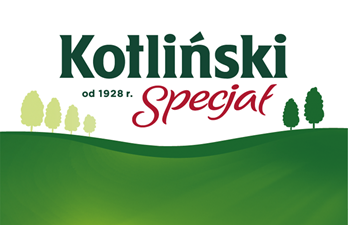We are excited to embark on a project in an industry that has been unfamiliar to us so far. We will be collaborating with ZPOW Kotlin, a food producer specializing in the processing of vegetables and fruits. The acronym of the project stands from its full name: Vegetable purchase process automation for green transformation.
Challenges of Inefficient Vegetable Purchasing
One of the main challenges of KOtlin's operations is the vegetable purchasing process. It is crucial as it influences the entire production process—from production planning to the capacity of production resources, and ultimately to stock levels and dispatch logistics. Additionally, managing this is difficult because Kotlin cannot control the timing and quantities of supplies, as they are dependent on seasonal harvest periods influenced by weather and local farmers' practices.
An inefficient vegetable purchasing process can have numerous adverse environmental effects, including the waste of natural resources. Vegetables may spoil while farmers wait for their turn, leading to the unnecessary use of water, soil, preservatives, and other resources for their cultivation. Additionally, increased pollution from tractors contributes to these problems. Consequently, the Life Cycle Impact Assessment (LCIA) of the products is adversely affected, and the carbon footprint becomes excessive.
The Comprehensive Digital Solution
In the VEGTRA project, we aim to develop a digital tool for managing the vegetable purchasing process. This tool will consist of three components:
1) Scheduling component - This will be structured as a list and/or a Gantt chart. The complete schedule will be available online through a web browser for access by Kotlin employees and farmer cooperatives, with controlled data access. It will allow multiple users to make simultaneous online modifications. The component will manage constraints such as the capacity of the purchase point, time slots allocated to each cooperative during a specific period, and the quantity of vegetables needed for a smooth production process. The schedule will be updated in near-real time based on the actual buying pace and can be easily adjusted manually by users.
2) Communication component - This will automatically send SMS notifications about the scheduled purchase time, updates if the schedule shifts beyond a set threshold, and indicate to Kotlin employees which individuals need to be contacted personally if there is no SMS response accepting the new date. Optionally, Kotlin may install a display screen at the purchase workstation to show the number of the farmer whose turn it is.
3) Purchase automation component - We will integrate the solution with the vehicle overground scale used by Kotlin to weigh the vegetables, ensuring automatic data collection. Additionally, a touch terminal will be installed at the weighing workstation using an edge application. This will be a straightforward tool with a few buttons, displaying farmer data in scheduled order. The operator will use it to confirm which farmer is being served and when the weighing process begins and ends. It will also offer functionality for displaying vegetable quality control instructions, quality forms (with an option to attach vegetable pictures), and reporting any other issues, such as scale malfunctions.
Predicted VEGTRA's impact
The project will significantly enhance the green transformation and competitiveness of Kotlin.
Primarily, Kotlin will tackle the issue of food and material waste associated with vegetable cultivation (pesticides, water, soil usage) and the vegetable purchasing process (fuel, water used in some cases to preserve freshness). By optimizing the purchasing process, the waiting time for purchases will be reduced, and the quantity of collected vegetables will be better managed, resulting in improved food quality and reduced waste. Consequently, their products will feature improved environmental indicators like carbon footprint or LCIA.
Secondly, the supply of vegetables will become more predictable, as the production manager will gain near-real-time insights into vegetable purchases. This will allow him and his team to plan production more effectively and respond to unexpected events, such as smaller vegetable sizes requiring reassignment to a different product.
Thirdly, by automating the purchase process Kotlin’s staff will spend less time on this task and the purchase reports will be always actual, accurate and errors-free. This will also eliminate paper usage and affect further operations such as accounting, payments and production analyses.
Last but not least, the organisation of the buying-in process can be one of the elements of competitive advantage in the market of purchasers. All of the abovementioned changes will lead to higher effectiveness of the processing of vegetables and should result in Kotlin’s margins improvement.
Conversely, VEGTRA will have a broader impact beyond just the Kotlin organization. Local farmers and their rural communities will benefit from the proposed solution in various ways, such as reducing the time needed to sell their crops and enabling them to achieve higher prices due to timely delivery and improved vegetable quality.
Lastly, it is important to note that VEGTRA could be implemented in other food manufacturing SMEs. This suggests that its impact could be extended to other rural and manufacturing settings.
In the VEGTRA project, we will verify the solution using the root vegetable purchasing process. Keep an eye out for updates on our accomplishments.
The project VEGTRA has received funding from the European Union’s Horizon Europe research and innovation programme under the GA 101058613. This publication reflects only MASTA's view. The European Commission is not liable for any use that may be made of the information therein.










Comments